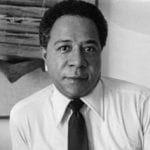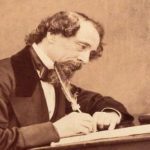 History
History  History
History  Animals
Animals Ten Times It Rained Animals (Yes, Animals)
 Mysteries
Mysteries 10 Devastating Missing Child Cases That Remain Unsolved
 Creepy
Creepy 10 Scary Tales from the Middle Ages That’ll Keep You up at Night
 Humans
Humans 10 One-of-a-kind People the World Said Goodbye to in July 2024
 Movies and TV
Movies and TV 10 Holiday Movies Released at Odd Times of the Year
 Politics
Politics 10 Countries Where Religion and Politics Are Inseparable
 Weird Stuff
Weird Stuff 10 Freaky Times When Famous Body Parts Were Stolen
 Miscellaneous
Miscellaneous 10 Interesting Things Manufacturers Stopped Making and Why
 Gaming
Gaming 10 Funny Tutorials in Games
 History
History 10 Desperate Last Stands That Ended in Victory
 Animals
Animals Ten Times It Rained Animals (Yes, Animals)
 Mysteries
Mysteries 10 Devastating Missing Child Cases That Remain Unsolved
Who's Behind Listverse?

Jamie Frater
Head Editor
Jamie founded Listverse due to an insatiable desire to share fascinating, obscure, and bizarre facts. He has been a guest speaker on numerous national radio and television stations and is a five time published author.
More About Us Creepy
Creepy 10 Scary Tales from the Middle Ages That’ll Keep You up at Night
 Humans
Humans 10 One-of-a-kind People the World Said Goodbye to in July 2024
 Movies and TV
Movies and TV 10 Holiday Movies Released at Odd Times of the Year
 Politics
Politics 10 Countries Where Religion and Politics Are Inseparable
 Weird Stuff
Weird Stuff 10 Freaky Times When Famous Body Parts Were Stolen
 Miscellaneous
Miscellaneous 10 Interesting Things Manufacturers Stopped Making and Why
 Gaming
Gaming 10 Funny Tutorials in Games
10 Authors That Never Existed
Well, they do—or did—exist, but really only under their real name. Authors have been using pseudonyms for centuries, sheltering their real identity behind a false byline. For some, it is a matter of stigma—wanting their work to be taken seriously at a time when their own name would not have been. Others chose a nom de plume because their writings were attributed to one specific genre or category, and they longed to step outside of the box and try on a new persona.
Though there are many reasons why an author would choose a name that differs from their own, every story behind the selection and use of a pen name is fascinating. Most of these pseudonyms are well-known by now, but there are still many that will surprise or intrigue you to learn.
Related: Top 10 Amazing Discoveries About Ancient Authors And Books
10 Mary Westmacott
aka Agatha Christie
We all know and love Agatha Christie for her iconic ability to weave mystery stories with a twist and a cast of familiar characters, such as Hercule Poirot and Miss Marple.
But during her time as a renowned mystery author, Agatha Christie decided to write under a pen name for a simple purpose. She knew that her fans would always expect her to publish mystery novels, and she wanted to branch out into a different subject matter. Christie wrote only six books as Mary Westmacott, giving her the chance to dive into the realm of human psychology—something that traditional Christie fans would not have expected from stories under her own name.
The pseudonym itself was thoughtfully chosen. Mary was Agatha’s middle name, and Westmacott was a name that ran in the family. Surprisingly, fans didn’t make the connection between Agatha Christie and Mary Westmacott for nearly twenty years. Now that we know these evocative and intuitive novels were penned by the same author as the Poirot books, we have a lot more respect for what an adept author she was.[1]
9 Mrs. Silence Dogood
aka Benjamin Franklin
Benjamin Franklin is a name that often causes us to picture a man standing in the middle of a field, kite in the air, key attached to the string—however false this tale may be. Though many accolades are attributed to this founding father, one aspect of his life still remains largely unknown.
Benjamin Franklin’s brother, James, owned a newspaper called The New-England Courant. The newspaper focused mainly on critiquing and arguing against Boston’s political and religious views. Then-sixteen-year-old Benjamin Franklin wanted to make his debut as a journalist for his brother’s paper. But instead of going the traditional route, Franklin chose to slip his submissions under the door of the newspaper office using the pen name Mrs. Silence Dogood. He wrote fourteen essays under his nom de plume, and all fourteen were well-received. Knowing his humble beginnings gives us a newfound respect for Mr. Franklin![2]
8 Clive Hamilton
aka C.S. Lewis
C.S. Lewis is one of the most well-known and influential authors of our time, producing notable books such as The Screwtape Letters, Mere Christianity, Out of the Silent Planet, and of course, The Chronicles of Narnia series. But long before becoming a renowned fantasy author, C.S. Lewis produced two books under the pen name Clive Hamilton.
The pen name was a combination of Lewis’ first name, Clive, and his mother’s maiden name, Hamilton. Spirits in Bondage was Lewis’s first published work under the pen name, published when he was only twenty years old and had just returned from military service. He pursued a career in writing poetry and published his subsequent work, A Cycle of Lyrics, soon afterward.
However, both books gained him little attention, so the author fixed his gaze on writing fiction instead. And all of the world is so glad that he did![3]
*insert Aslan roar here*
7 Robert Galbraith
aka J.K. Rowling
J.K. Rowling is a household name, mainly for the Harry Potter Series. But did you know that the famous author has another persona? Under the pen name of Robert Galbraith, Rowling has written a total of five detective books in a series titled Cormoran Strike. The author admitted that she enjoys writing under a male persona—claiming that she was inspired by authors such as Agatha Christie, Ruth Rendell, and PD James. Rowling desired to “start from scratch” with the Cormoran Strike series, not wanting her success from her other novels to influence the feedback she would get.
The name was created partly because of Robert F. Kennedy, Rowling’s hero, and a childhood dream to be renamed “Ella Galbraith.” Though Rowling was never legally renamed, we are glad she was able to achieve her dream by writing under the name Galbraith![4]
6 George Orwell
aka Eric Arthur Blair
George Orwell is best known for his political critique novels 1984 and Animal Farm. The name Eric Arthur Blair is not familiar to many literature lovers, but as the author of these beloved and cautionary narratives, he should be. Blair was a passionate political activist and an American essayist, journalist, and author.
Because his first book, Down and Out in Paris and London, was a deeply personal piece, Blair decided to use a pen name so that his family would remain oblivious to the period of his life spent in poverty. The rest of his writing career is history—publishing the instantly successful political tale of Animal Farm based on the events and people of the Russian Revolution.
Blair’s chosen pen name was a combination of Saint George of England and the River Orwell—one of his favorite places to visit. So the next time you see the name George Orwell on the spine of a novel, you’ll know more about the author than just his political leanings![5]
5 Lemony Snicket
aka Daniel Handler
Daniel Handler’s career is one quirky story after the other. The pseudonym Lemony Snicket began as a joke with his friends, a funny name to use for restaurant reservations and magazine articles.
Then, as Lemony Snicket, Handler wrote the entirety of the Series of Unfortunate Events. He claims that it is so much more than a pen name because of the fact that Snicket plays a pivotal character in the books.
The idea for the series was born out of sheer curiosity—what would happen if, instead of good things happening to innocent characters, one bad thing after another occurred to the Baudelaire siblings? Handler played around with this idea until the Series of Unfortunate Events was born, a succession of books that warn the reader to stop reading before they have even begun.[6]
4 George Eliot
aka Mary Ann Evans
One of the most successful writers of the Victorian period was Mary Ann Evans, known in those days as George Eliot. Before ever writing a novel, Evans worked as a freelance writer in London—collaborating on projects such as The Westminster Review. The author is perhaps most well known for her development of the groundbreaking method of psychological analysis in contemporary fiction.
Despite her tumultuous legacy of scandal and bitter gossip (she was in a long-term relationship with a married man), Evans saw the literary world forever changed with her published novels.
Mary Ann Evans chose a pen name due to the stigma at the time. She desired her work to be taken seriously and include all the advantages that a male pseudonym would reward her. Her name was a combination of George—named in honor of the man from the above-mentioned affair—and Eliot, a word that was easy to pronounce.[7]
3 J.D. Robb
aka Nora Roberts
Nora Roberts is a world-renowned author of more than 225 romance novels. Due to the expectations of her work, she began publishing thriller novels under the nom de plume, J.D. Robb. She claims that her agent instructed her to find a new aspect of her writing—memorably stating that Pepsi also has Diet Pepsi and caffeine-free Pepsi.
With the promise of drawing in an entirely new demographic of readers, Roberts came up with J.D. Robb and began writing novels that are the complete opposite of her normal pieces. Since the ninth book in the In Death series debuted, every single J.D. Robb novel has reached The New York Times’ bestseller list. Now that’s a good track record!
Roberts didn’t reveal her true identity until the twelfth book came out. This created a frenzy of Robert’s romance fans reaching for her other books. Roberts shows no signs of stopping publishing under J.D. Robb, and with over forty books in her pocket, we’re cheering for more![8]
2 James Tiptree, Jr.
aka Alice Bradley Sheldon
Today, it’s common knowledge among modern science fiction readers that James Tiptree, Jr. was a pseudonym. However, most people assumed the writer was male. When it was revealed that Tiptree was, in fact, a woman, many were shocked, with one critic even claiming that he could not be a she because of his superiority in masculine writing. Alice Bradley Sheldon was able to keep her real identity a secret, with her pen name earning a reputation for being a male author who understood women.
Tiptree’s stories often addressed gender issues—on Earth and in worlds beyond. One story in particular involves a woman opting to live with an alien nation, for the sole reason of avoiding the feeling of confinement she has in her male-dominated society. As Tiptree, Sheldon was able to use her masculine pen name to write in a time when male authors could expect more success in the realm of science fiction. The name Tiptree came from a brand of orange marmalade, and the Jr. was her husband’s idea.[9]
1 Flora Fairfield
aka Louisa May Alcott
We all know and love the iconic story of Little Women. The book was even brought into Hollywood, where five major films have been released, beginning in 1918. The others were released in 1933 (with Katherine Hepburn), 1949 (with Elizabeth Taylor and Vivian Leigh), and the two separately successful renditions of the beloved tale from 1994 and 2019. But did you know that the author behind one of the most well-known feminist novels in history originally wrote under the name Flora Fairfield?
Before Little Women, Louisa May Alcott was publishing short stories, poems, and even thrillers under the pen name Flora Fairfield (and another, A.M. Barnard). She began writing poetry and short stories for magazines in 1852 under the pseudonym. Her anonymity as a primarily children’s author ended quickly after the publishing of Little Women in 1868—though she continued to write stories aimed toward the adult demographic under her other pen names.
Louisa May Alcott left quite a legacy after her death at 56 years old. Her stories inspired a love of reading that many authors will forever attempt to replicate.[10]








